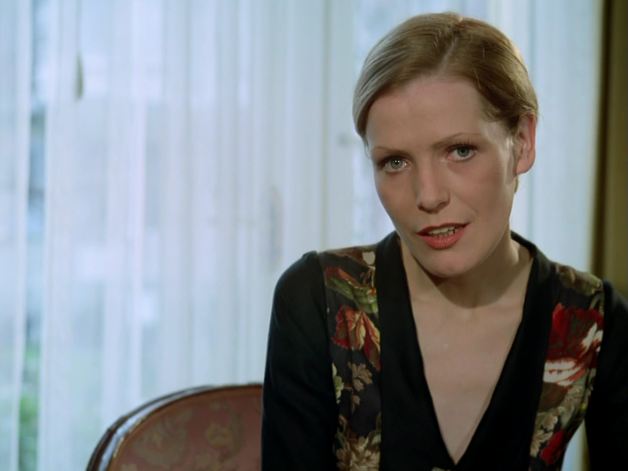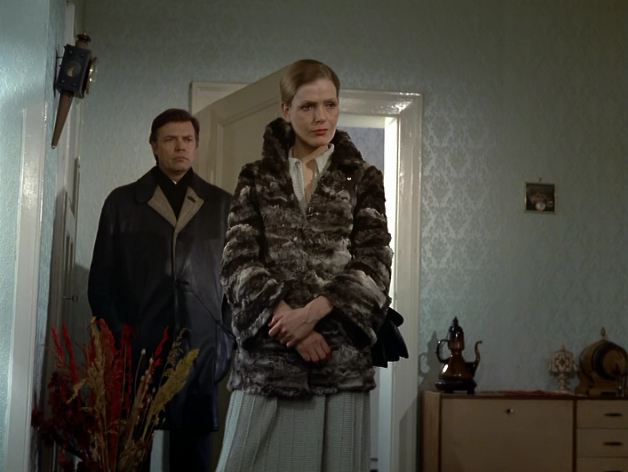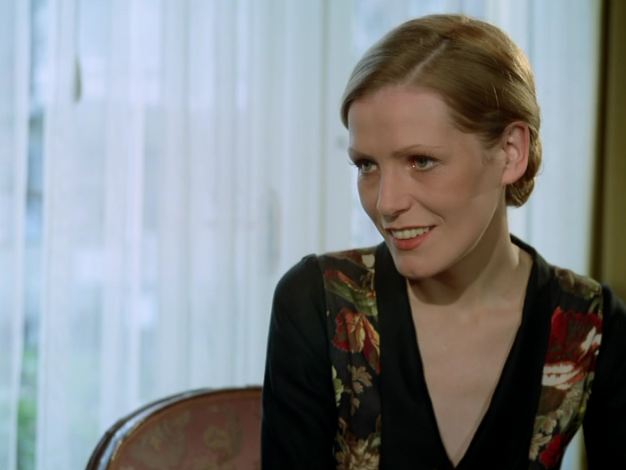Both Karlheinz Böhm and Margit Carstensen appear in the first major ensemble scene of Rainer Werner Fassbinder's Mother Kusters Goes to Heaven. They do so to demonstrate the fact that where you find the press, you’ll also find political parties. Simultaneously addressed, is the fact that where you find personal disaster among the public, the political parties are often there too.
Both Bohm and Carstensen are at their most good looking, in this film, apt for two of Fassbinder’s greatest all time creations – the Bourgeois Marxists. This seductive couple share a smile that is serpentine, robotic and idiotic, and the most entertaining thing about them in their first scene is that they merely appear, survey, smile and leave. Unlike the intrusive and rowdy press-pack, these politically minded smooth talking villains are waiting until their victims are weaker yet — and it’s then that they will draw Mother Kusters in on the pretext that they are helping her pick up the pieces.
It’s at the funeral that the Bourgeois Communists pounce, inviting Mother Kusters back to their amazingly un-Marxist house, both like nosferatu in their different ways — and as the old lady begins to spill her heart out – they really lap it up. For upper middle class people, the Bourgeois Communists know, or think they know, a hell of a lot about the workers. Of the two Marxists, Carsetensen is the more pleasantly brainwashed, as she is able to deliver so much rhetoric while also maintaining her lovely broad smile.
Margit Carstensen’s smile is also one of best things to watch in Mother Kusters Goes to Heaven, and it never ceases. Even when Carstensen is delivering bad news, she smiles, like the perfectly brainwashed case she is. The Communists, particularly in the scene in which we are privy to their regular meeting, are a comic bunch, with their repetition of stock phrases about the workers gaining class consciousness, just hilarious.
Communism in Germany at the time was very much a joke, and a moribund science. In the 1969 election, the SPD gained enough votes to form a coalition government with the FDP and SPD leader and Chancellor Willy Brandt remained head of government until May 1974, when he resigned after a member of his staff was uncovered as a spy for the East German Stasi. Brandt, dogged by scandal relating to serial adultery, and struggling with alcohol and depression was on the way out as it was, but even in the RAF era of the 1970s, there was no significant communist left for the main parties to deal with, and everything was, as it is portrayed in Fassbinder, fairly fringe.
Still — judging by the issues that the communists in Mother Kusters Goes to Heaven care about – price fixing by international monopolies, and employment patterns which favour the corporations, their work today is being done by the anti-Capitalist movement. And the notion of the Bourgeois Communist, as portrayed brilliantly by Margit Carstensen, is a very funny thing of the past only in name. The same people are about I guess, just as the Bourgeois Left - and they are ripe for comedy, although it waould be hard to see anything as gobsmacking these days as Margit Carstensen's smile.



